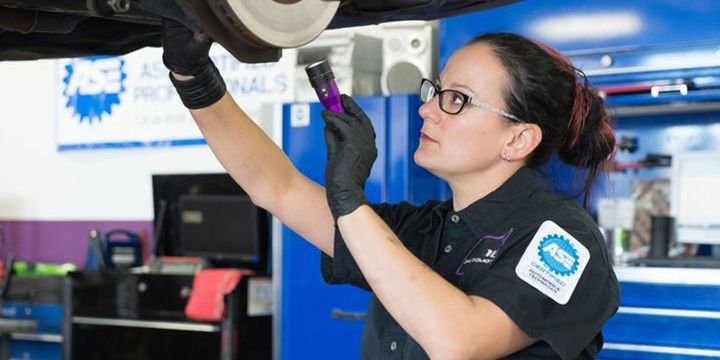
North America’s fleet of Class 8 trucks is undergoing massive changes to meet new demands for safety, fuel economy, and emissions. These new models have more computerized systems than ever, while electric and hybrid vehicles are rapidly being adopted across the industry. This means maintenance technicians need new skills to keep on top of repairs for this new generation of trucks. How can you be sure your techs are ready to repair these vehicles? Beto Doantas, chief technology and innovation officer at OEM part manufacturer ConMet, thinks companies should approach this problem in two ways.
Fleet managers need to work on retaining new mechanics while learning how to use new technology to streamline maintenance.
The Bureau of Labor Statistics estimates an 8% growth in demand for diesel truck service technicians between 2020 and 2030. That works out to an average of 28,000 new jobs each year. The turnover rate for technician graduates is high. According to the National Institute for ASI Automotive Service Excellence survey, 42% of new techs left the industry in less than two years. To meet the growing demand for technicians, recruiting isn’t enough. Experts must collaborate with vocational schools to better prepare students for this evolving work environment. Better preparation should result in improved employee retention.
Increasing computers and sensors adds complexity, but it also aids in fleet maintenance. For example, these sensors can identify issues, making pre-and post-trip inspections faster and more effective. These measurements include temperatures, alignment, weight, stud tensions, axle loads, trailer line pressure, vibration, and bolt tension. The technician can access all this information from a diagnostic computer or remotely using fleet management software. Fleet maintenance can be tailored to each vehicle ahead of time, with parts ready for installation when the truck enters the shop.
Fleet maintenance on electric vehicles and support systems is simultaneously more complex and easier than before. For example, the electric-powered refrigeration units entering the reefer market don’t just keep the trailer cold. Their battery systems can power auxiliary and propulsion systems. There is more to diagnose in these systems, but the switch to electric power reduces the number of mechanical components. In turn, this reduces or eliminates many preventative maintenance tasks.
Credits: https://www.truckinginfo.com/10161178/how-the-role-of-the-fleet-maintenance-technician-is-evolving



